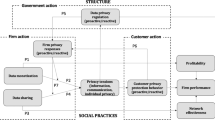ABSTRACT
The field of behavioral science has produced myriad data on health behavior change strategies and leveraged such data into effective human-delivered interventions to improve health. Unfortunately, the impact of traditional health behavior change interventions has been heavily constrained by patient and provider burden, limited ability to measure and intervene upon behavior in real time, variable adherence, low rates of implementation, and poor third-party coverage. Digital health technologies, including mobile phones, sensors, and online social networks, by being available in real time, are being explored as tools to increase our understanding of health behavior and to enhance the impact of behavioral interventions. The recent explosion of industry attention to the development of novel health technologies is exciting but has far outpaced research. This Special Section of Translational Behavioral Medicine, Smartphones, Sensors, and Social Networks: A New Age of Health Behavior Change features a collection of studies that leverage health technologies to measure, change, and/or understand health behavior. We propose five key areas in which behavioral science can improve the impact of digital health technologies on public health. First, research is needed to identify which health technologies actually impact behavior and health outcomes. Second, we need to understand how online social networks can be leveraged to impact health behavior on a large scale. Third, a team science approach is needed in the developmental process of health technologies. Fourth, behavioral scientists should identify how a balance can be struck between the fast pace of innovation and the much slower pace of research. Fifth, behavioral scientists have an integral role in informing the development of health technologies and facilitating the movement of health technologies into the healthcare system.
Similar content being viewed by others
References
Markets and Markets. Portable Medical Devices Market; By Equipment (Cardiac, Respiratory, Hemodynamic, Fitness & Wellness, Independent Ageing, Insulin pumps, Ultrasound), Semiconductor Components (Memory, PMIC, Processor, Display, Sensor, Connectivity) (2013 – 2018). 2013; Available from: http://www.marketsandmarkets.com/Market-Reports/semiconductor-opportunities-mobile-healthcare-market-1204.html. Accessed 17 July 2013.
Summit M. Francis Collins Keynote Address. 2012.
Turner-McGrievy GM et al. Comparison of traditional versus mobile app self-monitoring of physical activity and dietary intake among overweight adults participating in an mHealth weight loss program. J Am Med Inform Assoc. 2013; 20(3): 513-518.
Acharya SD et al. Using a personal digital assistant for self-monitoring influences diet quality in comparison to a standard paper record among overweight/obese adults. J Am Diet Assoc. 2011; 111(4): 583-588.
Pagoto S, et al. Evidence-based strategies in weight loss mobile apps. Am J Prev Med. in press.
Schoffman D, et al. Mobile apps for pediatric obesity prevention and treatment, healthy eating, and physical activity promotion: just Fun and games? Transl Behav Med: Pract Policy Res. 2013. doi: 10.1007/s13142-013-0206-3
Breland JY, Yeh VM, Yu J. Adherence to evidence-based guidelines among diabetes self-management apps. Transl Behav Med: Pract Policy Res. 2013. doi: 10.1007/s13142-013-0205-4
Consumer Reports. Diet plan buying guide. 2013; Available from: http://www.consumerreports.org/cro/diet-plans/buying-guide. Accessed 14 July 2013.
Christakis NA, Fowler JH. The spread of obesity in a large social network over 32 years. N Engl J Med. 2007; 357(4): 370-379.
Christakis NA, Fowler JH. The collective dynamics of smoking in a large social network. N Engl J Med. 2008; 358: 2249-2258.
Thoits PA. Mechanisms linking social ties and support to physical and mental health. J Health Soc Behav. 2011; 52(2): 145-161.
Fox S. Pew Internet: Health PEW Internet & Americal Life Project 2012; Available from: http://www.pewinternet.org/Commentary/2011/November/Pew-Internet-Health.aspx. Accessed 1 March 2012.
Black SR, Schmiege SS, Bull S. Actual versus perceived peer sexual risk behavior in online youth social networks. Transl Behav Med: Practice Policy Res. 2013. doi: 10.1007/s13142-013-0227-y
Hwang K et al. Social support in an internet weight loss community. Int J Med Inform. 2010; 79: 5-13.
Napolitano MA et al. Using Facebook and text messaging to deliver a weight loss program to college students. Obesity. 2013; 21(1): 25-31.
Turner-McGrievy G, Tate D. Weight loss social support in 140 characters or less: use of an online social network in a remotely-delivered weight loss intervention. Transl Behav Med: Practice Policy Res. 2013. doi: 10.1007/s13142-012-0183-y
Pagoto SL, et al. The adoption and spread of a core-strengthening exercise through an online social network. J Phys Act Health. 2013; (In press).
Vickey T, et al. Twitter classification model: the ABC of two million fitness tweets. Transl Behav Med: Practice Policy Res. 2013. doi: 10.1007/s13142-013-0209-0
Buller DB, et al. User-centered development of a smart phone mobile application delivering personalized real-time advice on sun protection. Transl Behav Med: Practice Policy Res. 2013. doi: 10.1007/s13142-013-0208-1
Glasgow RE, Phillips SM, Sanchez MA. Implementation science approaches for integrating eHealth research. Int J Med Informat. 2013. In press.
Kumar S et al. Mobile health: revolutionizing healthcare through transdisciplinary research. Computer. 2013; 46(1): 28-35.
Lei H et al. A "SMART" design for building individualized treatment sequences. Annu Rev Clin Psychol. 2012; 8(14.1-14.28).
Cobb NK, Poirier J. Implementation of an online pragmatic randomized controlled trial: a methodological case study. Transl Behav Med: Practice Policy Res. 2013. doi: 10.1007/s13142-013-0223-2
Kish L. The blockbuster drug of the century: An engaged patient. Available from: http://www.hl7standards.com/blog/2012/08/28/drug-of-the-century/. Accessed 2012.
Schramm M. Report: Customer Retention is a Major Factor for the Apple Store. 2013; Available from: http://www.tuaw.com/2013/03/13/report-customer-retention-is-a-major-factor-for-the-app-store/. Accessed 12 July 2013.
Breton ER, Fuemmeler BF, Abroms LC. Weight loss–there is an app for that! But does it adhere to evidence-informed practices? Transl Behav Med. 2011; 1(4): 523-529.
West JH et al. Health behavior theories in diet apps. J Consum Health Internet. 2013; 17(1): 10-24.
Michie S et al. A refined taxonomy of behaviour change techniques to help people change their physical activity and healthy eating behaviours: the CALO-RE taxonomy. Psychol Heal. 2011; 26(11): 1479-1498.
Conflicts of interest
Dr. Pagoto is on the advisory board of Mobile Wellbeing, Inc.
Author information
Authors and Affiliations
Corresponding author
Additional information
Implications
Policy: The only opportunity for digital health innovations to affect health policy is via rigorous efficacy research.
Research: Behavioral scientists are needed to facilitate the translation of digital health innovations from commercial enterprise to research to practice.
Practice: Practitioners need guidance as to which digital health innovations are appropriate and effective for their patients.
About this article
Cite this article
Pagoto, S., Bennett, G.G. How behavioral science can advance digital health. Behav. Med. Pract. Policy Res. 3, 271–276 (2013). https://doi.org/10.1007/s13142-013-0234-z
Published:
Issue Date:
DOI: https://doi.org/10.1007/s13142-013-0234-z




